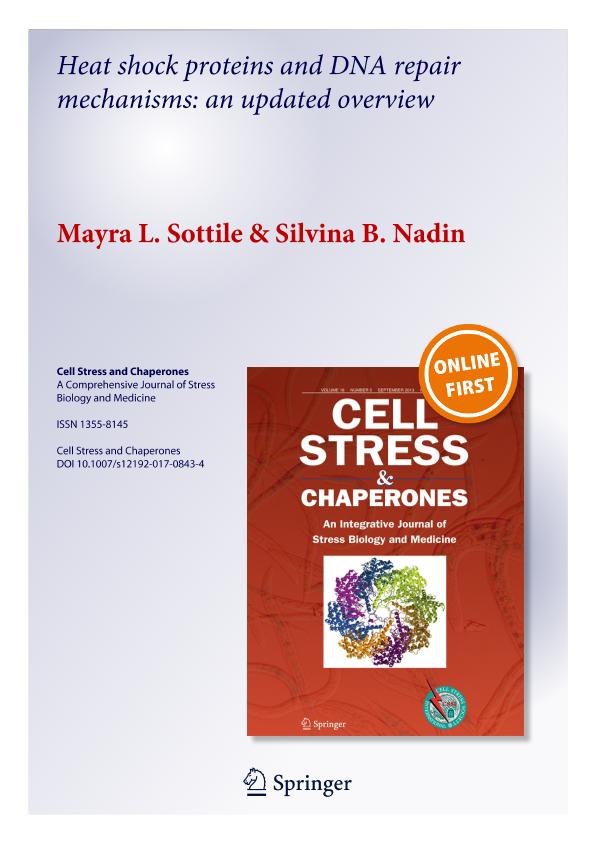Artículo
Heat shock proteins and DNA repair mechanisms: an updated overview
Fecha de publicación:
05/2018
Editorial:
Springer
Revista:
Cell Stress & Chaperones
ISSN:
1355-8145
Idioma:
Inglés
Tipo de recurso:
Artículo publicado
Clasificación temática:
Resumen
Heat shock proteins (HSPs), also known as molecular chaperones, participate in important cellular processes, such as protein aggregation, disaggregation, folding, and unfolding. HSPs have cytoprotective functions that are commonly explained by their antiapoptotic role. Their involvement in anticancer drug resistance has been the focus of intense research efforts, and the relationship between HSP induction and DNA repair mechanisms has been in the spotlight during the past decades. Because DNA is permanently subject to damage, many DNA repair pathways are involved in the recognition and removal of a diverse array of DNA lesions. Hence, DNA repair mechanisms are key to maintain genome stability. In addition, the interactome network of HSPs with DNA repair proteins has become an exciting research field and so their use as emerging targets for cancer therapy. This article provides a historical overview of the participation of HSPs in DNA repair mechanisms as part of their molecular chaperone capabilities.
Palabras clave:
Dna Damage Response
,
Dna Repair
,
Heat Shock Proteins
,
Molecular Chaperones
Archivos asociados
Licencia
Identificadores
Colecciones
Articulos(IMBECU)
Articulos de INST. DE MEDICINA Y BIO. EXP. DE CUYO
Articulos de INST. DE MEDICINA Y BIO. EXP. DE CUYO
Citación
Sottile Fleury, Mayra Lis; Nadin, Silvina Beatriz; Heat shock proteins and DNA repair mechanisms: an updated overview; Springer; Cell Stress & Chaperones; 23; 3; 5-2018; 303-315
Compartir
Altmétricas




